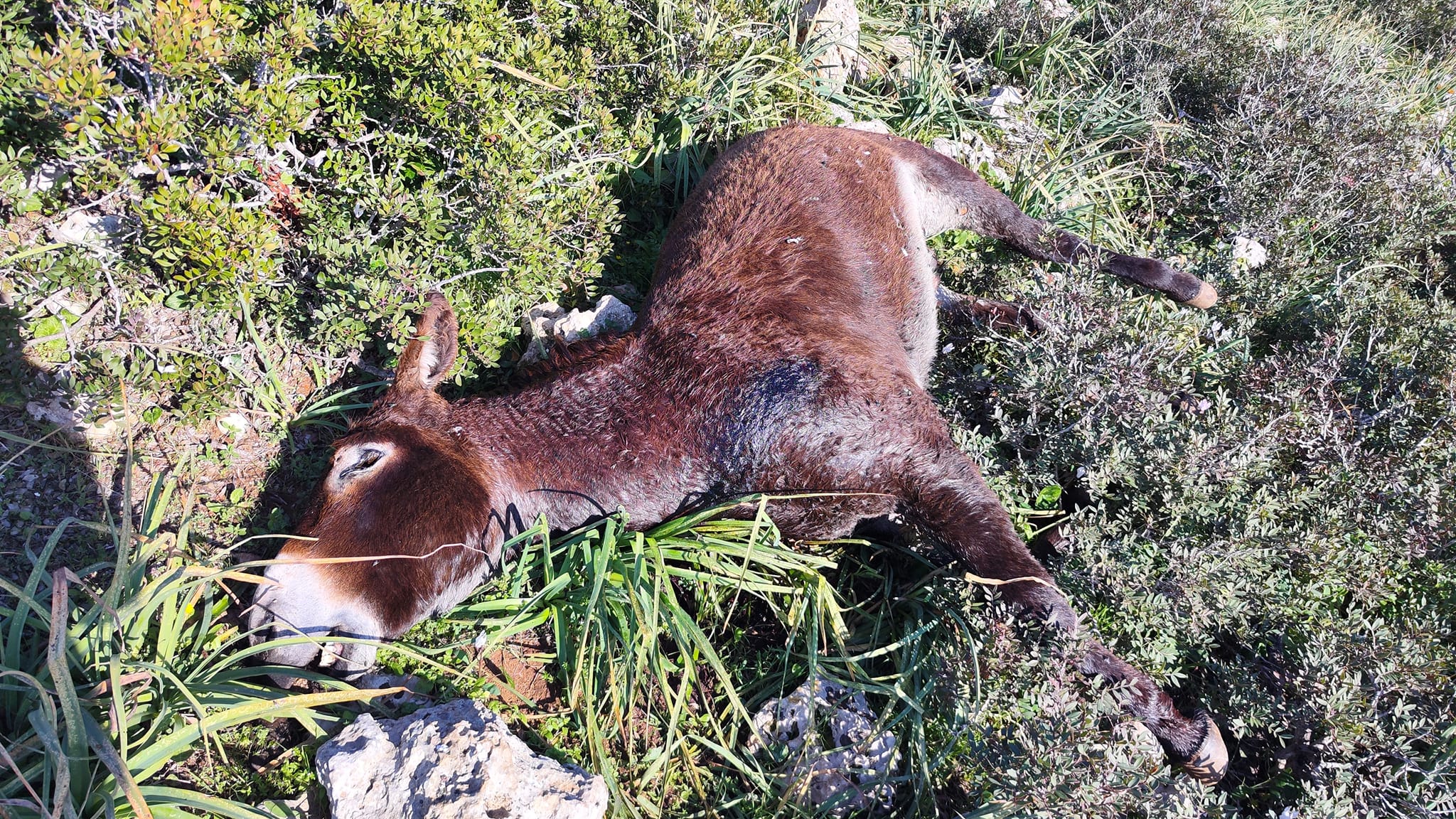At least 14 wild donkeys were found to have been shot dead during fieldwork carried out by the Tashkent nature park in Karpasia on Sunday, the charity announced on Monday morning.
The organisation said the donkeys were “brutally slaughtered”.
“These innocent animals, which are the symbol of Cyprus, were brutally shot and killed as a result of a brutal act of violence,” it added.
It pointed out that one of the donkeys killed was pregnant and was giving birth at the time, saying that this incident in particular “tore our hearts out”.
“Initial findings in the field determined that the animals were shot and killed at close range,” it added.
It said the police have launched an investigation into the matter.
Turkish Cypriot leader Ersin Tatar also weighed in on the matter, describing the incident as “heinous” and saying it has “deeply broken my heart”.
“Just as in cases of violence against women or children, it is our humanitarian duty to evaluate violence against animals within the scope of violence of the powerful against the weak and to raise our voice against it. The fact that the vast majority of our people have taken a stand against this cruel incident has been soothing for our pain,” he said.
He added that Turkish Cypriots “are a people who love animals and humans”, and that “the safety of our animal friends and their existence in a healthy environment should be our compass”.
“I have full faith that the perpetrators of this outrageous incident will be identified by our police immediately and brought to justice,” he said.
The incident comes a month after a donkey was left in a “critical condition” after being shot multiple times by a hunter.
At the time, Tashkent nature park director Kemal Basat described those who shoot donkeys as “nature terrorists”, and added that “the biggest enemy of hunting is its inability to cleanse itself of the bad apples”.
“These human-looking murderers are wandering around nature with hunting rifles with the permission given by the state. The fact that a psychopathic murderer has a hunting licence paves the way for such incidents,” he added.
The Tashkent nature park is overseeing the “Karpasia donkeys management plan”, which aims to “save” the donkeys and ensure they do not damage farmers’ crops in the region.
The project is jointly organised with the north’s ‘tourism ministry’ and the Turkish Cypriot Rizokarpaso and Yialousa municipality.
Basat told the Cyprus Mail that the donkeys would be counted, caught, subjected to health checks, and registered.
“The national park area at the tip of the Karpas peninsula will be modified, feed and water troughs will be placed in appropriate places, and scientific studies will be carried out to determine the total capacity of the area.”
He added that every donkey in Karpasia will be registered within the next three years, and subsequently be managed within the scope of the plan.
“The ultimate goal is to ensure that donkeys live safely and to the animal welfare standards which they deserve, to protect nature from the unintentional damage caused by donkeys, and to protect the local people’s products from donkeys in a correct and healthy way,” he said.






Click here to change your cookie preferences